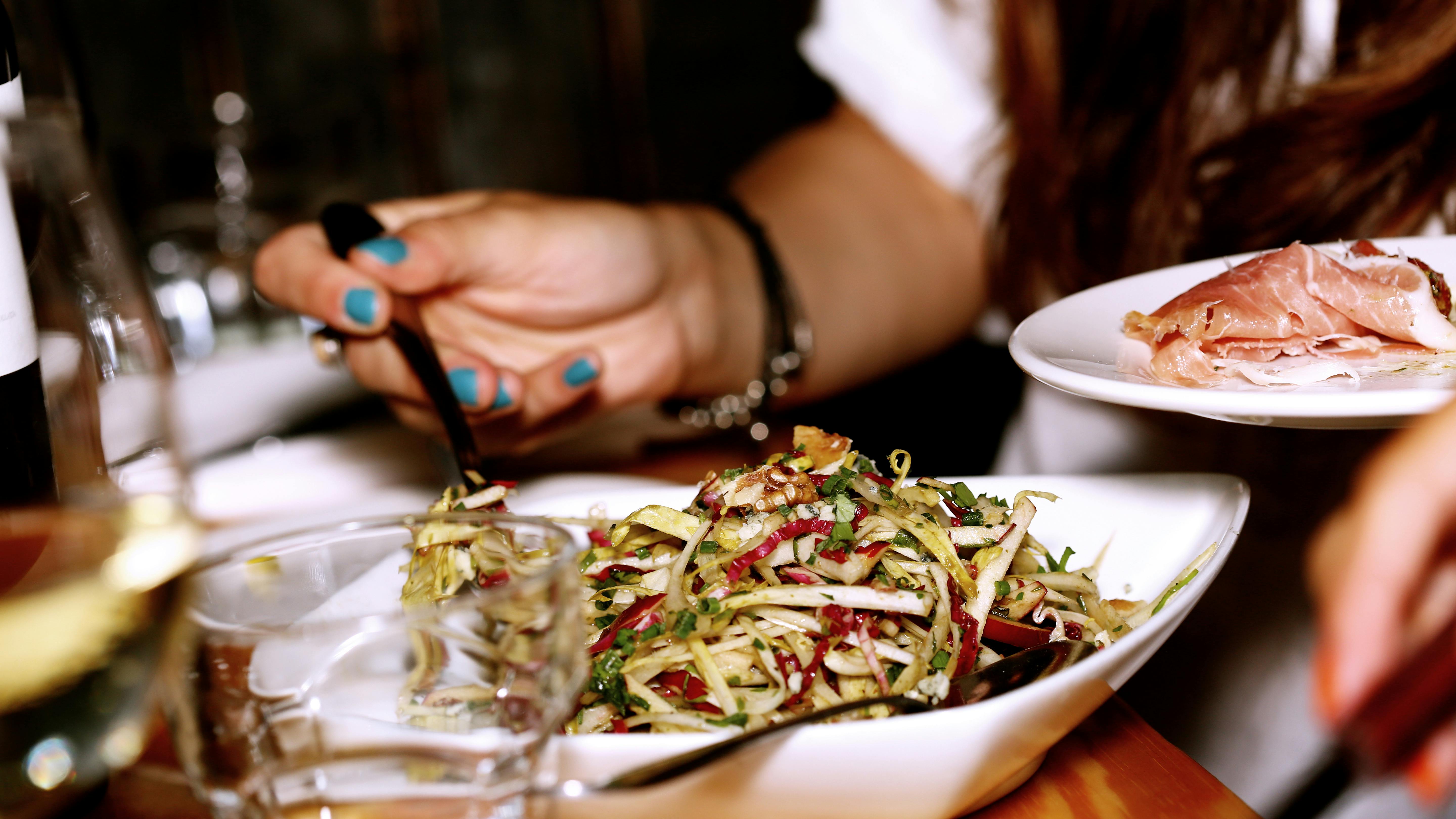Did you know that over 64% of all adults aged 20 years and older consumed one or more foods or beverages other than plain water in the late evening? If you’ve ever found yourself raiding the fridge at midnight, you’re not alone—and you’re also not just hungry. In fact, most people experience these urges, making night cravings a widespread issue.
Night cravings, often referred to as late-night cravings, are a complex dance of biology, psychology, and emotion. In this article, we’ll explore why night cravings aren’t just about food—they’re about feelings, and how understanding this can help you take back control of your eating habits.
Why Do Night Cravings Happen?
Night cravings are more than just a bad habit; they’re a window into your emotional and psychological state, influenced by various factors. Whether it’s stress, boredom, or simply the comfort of routine, your brain often turns to food as a way to soothe itself when the lights go out.
Understanding these factors can help you cope with night cravings. Introducing healthy coping mechanisms—such as mindfulness, exercise, or connecting with others—can provide practical strategies to address emotional triggers and reduce the urge to eat at night.
The Role of Emotions in Night Cravings
When you’re feeling stressed, anxious, or lonely, your brain craves quick fixes—usually in the form of sugar, salt, or fat. These foods provide an instant hit of dopamine, the feel-good chemical, which temporarily lifts your mood.
That’s why a tough day at work or a late-night Netflix binge can send you straight to the snack cupboard.
The Science of Night Cravings: Circadian Rhythms and Hormones
Your body’s internal clock, or circadian rhythm, also plays a starring role in night cravings. Studies show that we’re biologically wired to crave more calorie-dense foods in the evening, and our bodies process food less efficiently at night, making those snacks more likely to be stored as fat.
Disruptions to your circadian rhythm can lead to late night hunger, increasing the likelihood of night eating and making it harder to manage your eating patterns.
Hormones like cortisol, which rise with stress, can further increase your appetite and make you feel hungry at night, driving you toward high-calorie “reward” foods.
Night eating, often linked to these hormonal imbalances and circadian rhythm disruptions, can contribute to unhealthy eating habits and impact your overall health.
Night Cravings: What Your Midnight Snack Says About You
Did you know that nearly 70% of university students experience midnight cravings, with many citing social media and emotional triggers as the main culprits? Midnight cravings are a universal experience, but the midnight snacks you reach for—and why—can reveal surprising truths about your emotional and physical state. For example, candy is a typical tempting midnight snack that many find hard to resist.

Sweet Cravings: Stress, Sadness, and Loneliness
When you find yourself longing for a piece of chocolate or a sweet pastry late at night, it’s often more than just a sweet tooth acting up. These cravings are commonly linked to stress, sadness, or loneliness. Sugar-rich foods and other unhealthy snacks provide a quick dopamine spike, temporarily lifting your mood and offering a fleeting sense of comfort.
This is why, after a tough day or during moments of solitude, your brain nudges you toward the cookie jar rather than the vegetable crisper. Instead of reaching for sugary foods, try satisfying your sweet cravings with fruit, which is a nutritious, low-calorie option that can help support your overall well-being.
Key Insight: If you wouldn’t eat a healthy option like steamed vegetables when you’re craving food, you’re likely emotionally eating rather than truly hungry.
Salty or Crunchy Cravings: Frustration and Anger
A bag of chips, potato chips, or a bowl of popcorn might seem like a harmless snack, but your choice could be signalling frustration or anger. The act of crunching provides a physical outlet for emotional tension, helping to release pent-up feelings.
This is why after a heated argument or a day filled with annoyances, salty or crunchy snacks become especially appealing. However, it's important to pay attention to portion size when eating salty snacks to avoid overeating and manage cravings more mindfully.
Creamy or Comfort Foods: Seeking Safety and Nostalgia
Ice cream, mac and cheese, or creamy soups often point to a desire for comfort, safety, or nostalgia. These foods remind us of home, childhood, or simpler times, offering emotional warmth and security. For a healthier creamy option, cottage cheese is a nutritious alternative, rich in protein and calcium, and pairs well with pineapple for added flavour and digestive benefits.
Having a balanced dinner with adequate nutrients can help prevent late-night cravings for comfort foods, supporting healthier eating habits and reducing the urge to snack at night.
When life feels overwhelming or uncertain, your brain craves the familiarity and reassurance that only comfort foods can provide.
Spicy Foods: Boredom and Emotional Numbness
Spicy cravings are a bit more complex. While sometimes they’re tied to physical needs (like wanting to cool down in hot weather), they’re often a response to boredom or emotional numbness.
The heat from spicy foods can “wake up” your senses and provide a temporary distraction from emotional flatness or monotony. Capsaicin, the compound that makes food spicy, triggers the release of endorphins, which can help combat feelings of sadness or anxiety.
The Physical Triggers Behind Night Cravings
While emotions are a major factor, there are also physical factors that contribute to your body's reasons for late-night snack attacks.
Ignoring these physical triggers can contribute to health issues over time.
Skipped Meals or Poorly Balanced Diets
If your food intake during the day is insufficient or your meals are unbalanced, your body will naturally demand more fuel at night. Managing your calorie intake throughout the day can help prevent night cravings by ensuring you consume enough energy and nutrients. This is especially true if your diet lacks sufficient protein or fibre, both of which help stabilize blood sugar and keep hunger at bay.
Low Protein or Fibre Intake
Protein and fibre are essential for satiety and provide important essential nutrients that support overall health. When your meals are lacking in these nutritious nutrients, you’re more likely to experience cravings for quick, energy-dense foods in the evening.
Sleep Deprivation
Poor sleep disrupts the hormones that regulate hunger (ghrelin) and fullness (leptin), making you more likely to crave high-calorie, high-carb foods at night.
.jpg)
Sleep deprivation also blunts activity in brain regions responsible for appetitive evaluation, while amplifying reactivity in areas associated with reward and salience—making junk food even more tempting.
Additionally, poor sleep can increase cravings and appetite in the morning, making it harder to make healthy food choices at the start of your day.
Dehydration
Sometimes, your body confuses thirst for hunger, especially late at night, making proper drinking habits important for hydration. If you haven’t had enough water, you might find yourself reaching for a snack when all you really need is a glass of water. Drinking water before eating can help you determine if you really need to consume more food, or if your body is just asking for hydration.
How to Manage Night Cravings
Managing night cravings is less about sheer willpower and more about understanding your personal triggers and adopting healthy, sustainable habits. Incorporating effective coping mechanisms, such as engaging in relaxing activities or connecting with others, can help address emotional triggers that lead to cravings.
Whether you’re reaching for snacks out of habit, stress, or genuine hunger, choosing healthier alternatives and making healthy choices are key mindful strategies that can help you regain control and improve your relationship with nighttime eating.
1. Identify Your Triggers
Why it Matters:
Night cravings often stem from emotional or environmental cues rather than physical hunger. Recognising these triggers is the first step toward breaking the cycle.
How to Do It:
Keep a food journal for at least a week. Each time you feel the urge to snack at night, track your food intake by noting:
- What you ate or crave
- The time
- Your mood or emotional state
- What you were doing at the time (e.g., watching TV, working late, feeling lonely)
Expert Insight:
Research shows that tracking your eating patterns can help you spot recurring triggers, such as stress, boredom, or specific activities. Once identified, you can address the root cause instead of turning to food.
2. Establish a Routine
Why it Matters:
Irregular eating and sleeping schedules can disrupt your circadian rhythm, making you more prone to nighttime hunger, cravings, and late-night eating. Late-night eating, especially due to late-night cravings for unhealthy snacks, can negatively impact sleep, digestion, and overall health.
How to Do It:
- Set regular meal times: Aim for three balanced meals and one or two healthy snacks at consistent times each day.
- Prioritise a balanced dinner: Eating a satisfying and nutritious dinner can help prevent late-night eating by reducing the urge to snack later in the evening.
- Eat enough during the day: Eating more calories earlier in the day can help curb nighttime cravings. Skipping meals or undereating can lead to overeating at night.
- Stick to a sleep schedule: Go to bed and wake up at the same time every day, even on weekends, to regulate your body’s internal clock.
Expert Insight:
Studies suggest that people who eat breakfast and lunch tend to have fewer cravings at night. A consistent routine helps stabilise blood sugar and reduces the likelihood of late-night snacking.
3. Practice Mindful Eating
Why it Matters:
Mindful eating encourages you to pay attention to your food, savour each bite, and recognize when you’re truly full. This can help you feel more satisfied and less likely to snack later.

How to Do It:
- Eat without distractions: Turn off the TV, put away your phone, and focus on your meal.
- Chew slowly: Take your time to enjoy the flavours and textures of your food.
- Check-in with your hunger: Before eating, ask yourself if you’re truly hungry or eating out of habit or emotion.
- Be mindful of portion size: Stick to single servings to avoid overeating and manage late-night cravings effectively.
Expert Insight:
Mindful eating has been shown to reduce binge eating and emotional eating, helping people develop a healthier relationship with food. Being aware of what you are consuming during late-night snacking is especially important, as it can help prevent negative health effects associated with eating at night.
4. Find Healthy Alternatives
Why it Matters:
If you do feel the urge to snack at night, choosing good options can satisfy your cravings without derailing your health goals. Selecting these good options can also help prevent the urge to eat more food later at night.
How to Do It:
- Sweet cravings: Good options include a small piece of dark chocolate, a few slices of apple with almond butter, or a handful of fennel seeds.
- Salty cravings: Good options are roasted chickpeas, air-popped popcorn (lightly salted), or a handful of nuts.
- Creamy cravings: A good option is a small serving of Greek yogurt with berries or a banana with a dollop of nut butter.
When possible, choose whole foods over drinking a smoothie, as eating whole foods is more likely to promote satiety and help regulate calorie intake.
Expert Insight:
Healthy snacks that combine protein, fibre, and healthy fats can help keep you full and satisfied, reducing the likelihood of overeating.
5. Manage Stress and Emotions
Why it Matters:
Stress, anxiety, and other emotions are major drivers of night cravings. Learning to manage these feelings can help you avoid turning to food for comfort. In some cases, emotional eating may be linked to eating disorders such as binge eating disorder or night eating syndrome, which may require professional intervention.
How to Do It:
- Deep breathing: Take a few slow, deep breaths to calm your mind and body.
- Meditation: Practice mindfulness or guided meditation to reduce stress and improve emotional regulation.
- Short walk: A brief walk can help clear your mind and reduce cravings.
- Engage in a hobby: Distract yourself with an activity you enjoy, such as reading, drawing, or listening to music.
- Coping mechanisms: Replace food-based comfort with healthy coping mechanisms like yoga, journaling, or calling a friend to manage emotional triggers.
If emotional eating becomes overwhelming or you suspect you may have an eating disorder such as binge eating disorder, seeking professional support—such as cognitive behavioral therapy (CBT)—can be essential for developing healthier eating habits and addressing underlying issues.
Expert Insight:
Stress-reduction techniques can lower cortisol levels and reduce the urge to eat for emotional reasons. Even a few minutes of relaxation can make a big difference.
Additional Tips for Managing Night Cravings
- Stay hydrated: Sometimes, thirst is mistaken for hunger. Drink a glass of water before reaching for a snack.
- Get enough sleep: Poor sleep can disrupt hunger hormones and increase cravings. Aim for 7-9 hours of quality sleep each night. Poor late-night eating habits can contribute to weight gain and other health issues, so maintaining a regular sleep schedule and mindful eating is important.
- Create a calming bedtime routine: Wind down with a warm bath, light stretching, or gentle music to signal to your body that it’s time to relax.
- Choose foods that reduce inflammation: Incorporate foods rich in soluble fiber and antioxidants, such as fruits, vegetables, and whole grains, to help reduce inflammation and support overall health.
Take Control of Your Night Cravings
Understanding and managing your night cravings is a journey, not a quick fix. By identifying your triggers, establishing healthy routines, practising mindful eating, choosing healthy alternatives, and managing stress, you can break the cycle of nighttime snacking and improve your overall well-being.
Ready to build healthier habits and manage your night cravings? Visit Rocket Health for personalised support and expert guidance!

.png)
.png)




